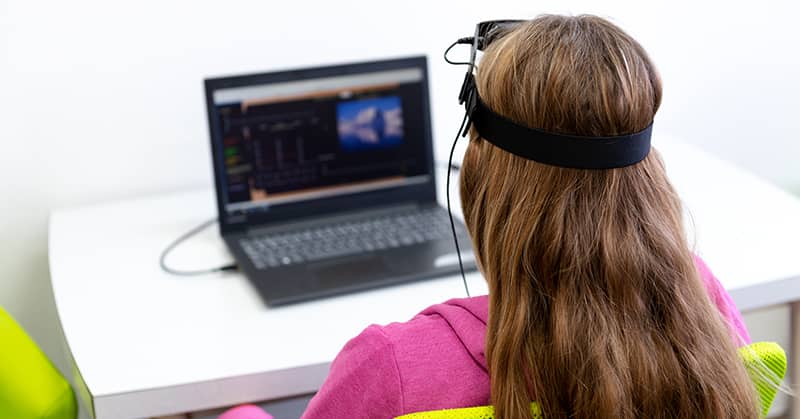
Cognitive-Motor Interference And Effect On Memory
This competition for available neural resources is referred to as cognitive-motor interference. However, in a study published in March, this long held scientific view came into question. Among 26 young adults, 14 improved in measures of cognitive task performance while walking compared with sitting. Of the remaining twelve participants, eight saw no change in performance and only four showed the expected decline. First author Eleni Patelaki, at the University of Rochester, explained, saying, "It was surprising that for some of the subjects it was easier for them to do dual-tasking -- do more than one task -- compared to single-tasking -- doing each task separately. This was interesting and unexpected because most studies in the field show that the more tasks that we have to do concurrently the lower our performance gets." This unforeseen finding was discovered using the Mobile Brain/Body Imaging system, or MoBI, a new modality using electroencephalography (EEG) to investigate brain activity while participants actively move in and interact with their environment.Cutting Edge Mobile Brain/Body Imaging Reveals Impressive Results
For the study the participants looked at a series of images, either while sitting on a chair or walking on a treadmill. They were instructed to click a button each time the image changed. If the same image appeared back-to-back participants were asked to not click. This test of inhibitory control is called the Go/No Go task; it tests the ability to inhibit (no-go) pressing the button when the image is repeated. "To the naked eye, there were no differences in our participants,” Dr. Patelaki said. “It wasn't until we started analyzing their behavior and brain activity that we found the surprising difference in the group's neural signature and what makes them handle complex dual-tasking processes differently.” Even more exciting, they tried the same test with seniors.Brain Flexibility – A Feature Of “Super-Agers”
The study in young adults was repeated in 37 men and women, ages 62 to 79. Each scored similarly on the visual identification task while sitting. But, when the test was repeated on the treadmill, task performance declined in 20 individuals, stayed the same for ten, and for seven seniors, there was an improvement in cognitive performance. What did this mean? The MoBI showed these seven had flexible usage in certain frontocentral regions of the brain. And the findings suggest that the brain’s flexibility in reallocating neural resources while walking might be an important factor in protecting cognition as we age. In fact, Dr. Patelaki goes further, suggesting that these brain changes could act as markers of brain function for people whose brain ages slower than the rest of their body. “We think this brain activity might constitute signatures of ‘super-aging’. We were able to find seven people, and now that we know where and how to look in the brain to find these super-agers, we can find more. “These markers,” she explained, “could be used to assess the degree of disease progression, to evaluate treatment outcomes, and potentially to identify people, pre-clinically, at high risk for developing aging-related or disease-related cognitive decline.” Her colleague, Dr. Edward Freedman, agreed, adding, “These findings have promise for being translated to clinical populations, such as patients with neurodegenerative diseases.”Future Treatment For Alzheimer’s and Dementia
Dr. Freedman is also hopeful that further research could reveal ways to use walking to improve cognitive functioning in seniors. "These new findings highlight that the MoBI can show us how the brain responds to walking and how the brain responds to the task. This gives us a place to start looking in the brains of older adults, especially healthy ones." And Dr. Patelaki thinks the research can also help seniors who are already struggling with memory loss. "These findings have the potential to be expanded and translated to populations where we know that flexibility of neural resources gets compromised," she said (referring to effects of aging and those with neurodegenerative diseases such as Alzheimer’s disease and mild-cognitive impairment). Of course, the research is in its infancy, but there are certainly some important takeaways for you and your loved ones.Our Takeaways
We’ve long extolled the health benefits of walking for the brain and the body. While there’s no guarantee that walking while performing a second task will help you become a “super ager,” research shows the simple act of walking alone will help improve your memory. Research already shows that walking can improve blood flow to the brain and support a sharper, clearer memory. Walking also improves the health of your heart and lungs, can help you balance blood sugar and lose weight, as well as stretch and strengthen your muscles and support stronger bones. So, get up and get moving. Whether you’re walking on a treadmill and performing a task at the same time like the folks in the study, or you’re just walking around the block every morning. Your memory—and your body-- will thank you. Best Regards, The Awakening From Alzheimer’s Teamhttps://www.sciencedaily.com/releases/2022/06/220621141756.htm https://www.urmc.rochester.edu/news/publications/neuroscience/possible-steps-to-revealing- super-agers https://www.sciencedirect.com/science/article/pii/S1053811923002446?via%3Dihub
